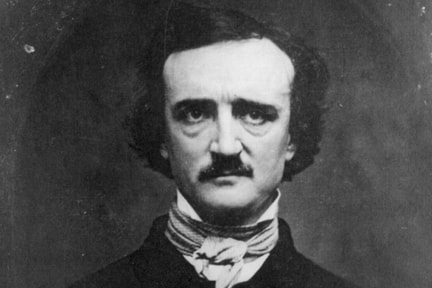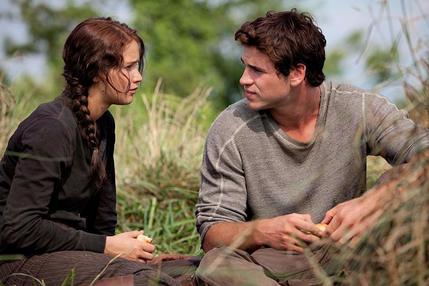Written by John Edward Betancourt  Over the past few weeks, we’ve been able to debunk and deconstruct some of the silly myths that surround creative writing. We’ve discussed some of the bad advice that writers receive from time to time, and we’ve talked about how writing isn’t as easy as some might think, and how it requires some dedicated and hard work, and we’ve also removed the mystique surrounding a day in the life for a writer, making it clear that the day to day duties of a writer are no glamorous affair. Yet, despite breaking down these key myths about the craft, there are plenty that still remain and one that continues to hang in the back of my mind, involves what exactly inspires a writer to write. Because a lot of people seem to believe, that creative writing comes from the darkest recesses of the human mind. That only our most depraved nightmares and ugliest emotions can properly craft a quality story and that’s an image that’s been nurtured in popular media throughout the years since writers are oft portrayed as moody, miserable types, whose souls are eternally tortured and they also smoke and drink and wallow in sorrow and loneliness in order to find the inspiration necessary to allow for words to appear on the page. And while there is some truth grounded in this particular myth, since some of the greats did (or do) enjoy a lot of whiskey or a lot of beer and other mind altering goodies when they sat (or sit) down to create, the part where one needs to be in a perpetual state of depression is quite frankly an outright lie. Don’t get me wrong, writers find themselves in depressed states from time to time, because scribes are people too. They have heartache in life, they lose loved ones and find themselves in tough places financially, but those moments don’t inspire a beautiful coming of age story or the next great American novel, they inspire…more sadness. They leave the writer down in the dumps, or in therapy, or in an outright malaise, because that’s what depression does, it drags one down, it saps your energy and it leaves you with no desire to do the things you love, and well, it’s best I just say it now, this is a myth that is just downright fucking stupid. I just don’t understand how being miserable is inspirational in the slightest, but this myth still exists, and it has to die. So really, the only way to debunk this one, is to flat out discuss exactly what it is that truly drives a writer to sit down and write and in reality, what inspires a scribe; is everyday life. Because good writing involves capturing moments in time, including both the good and the bad that we all go through in life and it’s what a writer sees and experiences that helps them to create. Which is why so many writers are dedicated to observing the world around them, and why they draw from their relationships and what happened at the bank that particular day because they can take those elements and put them into incredible situations and super charge them on the page so that the reader can enjoy a thrilling and engrossing tale and oddly enough, there’s a bigger reason why one doesn’t want to be depressed when writing. Because if there’s one thing a writer truly wants to make immortal on the page, it’s the beauty of the world we inhabit. For while it seems as though the world is a rotten place sometimes, there is still majesty happening all around us. There are lovers discovering their feelings for one another, someone is finally feeling relief from a tough moment in their lives, someone is becoming a parent for the first time, or they’re celebrating the life of someone near and dear to them because there is beauty to be found in death and really, the negative emotions that one experiences when down, while expected and natural in life, truly hinder a writer from seeing any of that beauty. However, if we truly want to put an end to this myth, understanding inspiration is not enough. It needs to be nurtured properly. Which means, that the next time you get the opportunity to speak a writer who jotted down a story that features some heavier material, don’t just discuss the darkness, instead, ask them about what inspired the moments that moved you emotionally, and believe me they’ll be happy to talk about that and let others hear you ask questions like that to engender more discussions in that vein. And as for the young writer who is starting out and wondering if this myth is legit, don’t listen to that bullshit in the slightest. Instead, go out and enjoy this magnificent world. Get your heart broken, mourn what you lose, have that awkward conversation with that stranger at the store and watch the world that moves around you because there’s so much to see and also, take care of your health, both mental and physical and use what you’ve learned and seen to feed the stories you want to tell, and if this kind of curiosity can take hold from both readers and writers, then maybe there will finally come a day where novels and scripts and everything in-between are always heralded for their encapsulation of the human condition over any worry about where a writer’s state of mind was when they put pen to paper…
0 Comments
Written by John Edward Betancourt  I’ve always found it fascinating how writing about a particular topic can in essence, open up a world of possibilities topics wise when you realize you’re diving into something supremely fascinating, and that’s precisely where I’m at when it comes to the world of Writing Myths. Because as it turns out, there’s plenty of them to discuss and debunk due to the fact that this is a world that only a handful of people truly understand, meaning that a vast majority of folks just fill in the blanks as to what goes on exactly with creative writing, and one of the biggest myths out there, is the strange perception surrounding what a typical day looks like for a writer. Because people really seem to believe that writers have a simple life, one that entails this magical daily routine. In fact, there’s a perception that a day in the life of a writer, consists of the following. First and foremost, there’s the belief that writer’s wake up rested and ready to go at the crack of dawn, and that after a healthy breakfast and a hot shower, they settle into their office and get right to work, with their fingers flying over a keyboard as they fire off 2500 words with little to no effort for a few hours a day, and once they’ve reached a stopping point, it’s off to lunch and the post office to collect those fat royalty checks before returning home to spend the rest of the day pondering upon life and stories before a healthy dinner and an early bedtime to make they are rested and ready for another day of creation. Which quite frankly, does sound like a magnificent life, one that quite frankly, is a load of bullshit. Because creative writing as a career, rarely resembles days like that. It can happen, but those perfect days are far and few between. So, without further ado, let’s bust that myth wide open and discuss how a day in the life of a writer really looks, starting with the fact that many writers out there, have day jobs. So, they start they day off by going to work at their regular gig, and either get a few words in before they hit the road, or they create when they’ve arrived home because unfortunately, professional writing doesn’t always pay someone six figures. In fact, a lot of freelance works happens in this world in order to bring someone’s dream of becoming a writer to life and the surprise reality of what daily writing looks like, doesn’t end there. Because while there are times where the words come easy, and your fingers do indeed move on automatic and create wonders on the page, the fact of the matter is, there are a lot of days where the words simply don’t flow, and that few hours of work time, slowly extends into an all-nighter. That could be due to the fact that a writer is facing a deadline, or, is just outright determined to reach a stopping point, but one way or another, you’re working until dawn on this particular story or piece to get it right and let me tell you now, if I had a nickel for every single time it was two in the morning, and I was staring at the screen in the hopes of getting one particular line perfect so I can finally log off and get the hell to bed, I could retire right now. If anything, the harsh reality that comes with creative writing, is the sheer fact that it is hard work, like any other career. There are no shortcuts to be found here, or glamour when it comes to the creative process, just hours of work to find the right words and flow for your story. But the rewards are always worth the effort. Because there is no greater high than having your work pour out of your fingertips in the middle of the night, and truly, when I’ve finished a story, or a book, or a script or found the right words I was looking for, I sleep deep and really, the point of all of this, is to make it known that writers bust their hump, and I suppose this particular myth just irks me because it cheapens all of that hard work that scribes do. But hopefully, if you’ve ever been curious about what goes into creating a story, you have better insight now into some of the hard work that goes into this craft and please, spread the word, because this kind of silly myth simply needs to go away. Written by Shae Rufe  That title is a bit of a tongue twister, well, not quite a tongue twister. It could be with a bit more effort. But I digress. Today, I wanted to take the time to talk about writing. And by talk, I mean write…because, I could talk, but then the cats would just think I’m crazy. Which, at this point, is probably a viable option. While I am certainly no expert on the subject of writing, I am a writer, nonetheless. The first rule in writing is to always talk about your passion, and I guess this one is mine. Granted, what you are about to read is purely my opinion, so take this with a grain of salt…or use that salt to line the rim of your margarita glass, and have a sip with me, while we embark on this fun journey together. I once had a professor who stood before the class and told everyone that he believed that writing was a talent that couldn’t be learned. You either had it, or you didn’t. Well, I guess according to him I didn’t have it because he nearly failed me in English 102. Judging someone on his or her ability to write a research paper really isn’t that fair. What he really taught me was how to write in different styles to appease different teachers. The bottom line is, writers have their own style of writing, and there is no right way to write. Grammatically, sure, there’s right and wrong, but that’s changing constantly. Phonetics taught me a lot about sentence structure, and how we’re constantly changing words, meanings, and our language is in a constant fluid state. So, what makes a good writer and good writer? Opinions, really, and passion. If you’re passionate about something, that’s going to make that something 10 times better than if you’re not. I’ve never believed writing to be a talent. I’ve always just believed that people write in our own ways. I’ve met plenty of people who have literally told me, to my face, that I should never write anything, ever. And that’s fine. Part of being a writer is learning to have your work criticized in all forms. Criticism isn’t always nicely worded, people like to judge, and being harsh is easier. My experiences have taught me that having a tough skin is a must in this business. Being open to change is another. But why do we write? Some of us keep journals; write poetry, or even just rambling, so why do we feel an urge to write? I suppose there are many reasons we do it. I know for me, it’s about telling a story, sharing something that I find interesting with other people. Writing is also very cathartic. When it comes down to it, writing is really just about self-expression. Writing doesn’t judge, it doesn’t criticize, and it just exists. It’s a world we get to create the most say over. Being able to manipulate the world in a way we can’t in reality has a large draw. It’s why so many books, movies, games, and so on, exist in the world. We want a temporary escape from our lives. At least, I know I do. There is no right way to write, there is only your way. Finding that motivation that draws you into a story, regardless of what form it takes, is something too personal for anyone to quantify. The draw for me was always to find that escape. Going into a world that was new and something I had created, something I could control, and have a say in, has always been a massive draw as to why I write. The process is different for everyone, but for me it’s having a say in what happens. Despite my very quirky, excitable, exterior, I am actually quite shy when it comes to my writing. Yet, I want to share my stories. It’s that writer’s conundrum. We want to show the world our work, without actually showing the world our work. Regardless of what we write, though, we all write for one common thing; to tell a story. Whether we share it or not; if it’s private or public; autobiographical or fictional; we write to tell a story, any story. It may not mean something to someone else, but it means something to us and that’s the most important thing. Written by Shae Rufe  As writers, we take inspiration from many places. One of the most inspiring, for me, I have found, is music. Every writer has different tastes, and music either helps them write or it doesn’t. I’ve just always found that the right music can produce some of the most amazing scenes inside my head. While some songs work for setting certain moods, others don’t work at all. Perhaps it’s the writer's taste, or the subject being written about, or a combination of both. I’ve always found that scores and instrumental music helps me write the most. In fact, if you looked at my iTunes account, you’d find a lot of movie scores. Hans Zimmer, Alan Silvestri, Greg Edmonson, and Michael Giacchino, are just a few of the composers on my phone. Their sound tracks have inspired many a blog and countless stories. Which may not be their intended purpose, but music has its own way of doing things. After all, so many genres exist because we have so many different tastes. Music has always been a constant in our lives, and it never asks any questions, it simply understands and manages to fit our mood. We are as passionate about music as we are about anything. I’ve seen friendships nearly destroyed over arguments of which band is better. What a better way to bond then over a common love, or hate, for music? With so much of it out there, competing for our attention, it’s not a wonder why we have our favorites and least favorites. I’m not ashamed to admit I own many a shirt and jacket with a specific band logo on it. I’ve been to many a concert and had inspirational moments there. Music exists, to me, to inspire and make us think. I’m always listening to the lyrics and finding what those words means to me or focusing on the melody. While I love a good song with brilliant lyrics, I love just the music itself more. The Piano Guys and 2Cellos have stolen my attention recently. However, the violin has been a lifelong love affair. Lindsey Stirling should be given the most credit for the inspiration she gives me. There’s just something about her music that draws me in and has me brimming with so many ideas to write. Of course, music can inspire us to do so much more. There isn’t anything we can’t do with the right music. That’s probably why we all have our various ‘mixes’. I know I have a work out one, and a writing one and even a mix for sad days. Music can cheer us up, cheer us on, and make us think. It moves us and is made with such passion that we feel it through each note. While two songs can be similar, they’re never truly the same. That’s the best part about music. For me, it’s the inspirational qualities music has. Whatever its intended purpose was, music is inspiring many people in so many ways. Even in video games, their music is designed to help us concentrate and inspire us to push forward. The many emotions a song can produce have been used against us in horror movies or caused us to feel suspense. Music is so versatile and used for so many things, it’s no wonder we can’t get enough of it. Written by John Edward Betancourt  You know, it really is quite the exciting time to be a writer, right now. Because the internet has opened up all kinds of wild and amazing possibilities and opportunities for people who want to take a crack at putting words to paper, and that’s honestly amazing, since opportunities that were never available years ago can now present themselves to someone with something as simple as a tweet. However, while the opportunities are endless for new and established writers out there, I have noticed over the past few years that loads of misinformation in regard to the craft are everywhere on the web, to the point where myths permeate certain materials that are critical for anyone wanting to write and well, since the world of writing has been so good to me over the past six years, I only thought it would be right to pay it back by trying to debunk some of the myths and misinformation out there on the web. But, where does one start, when it comes to cutting through some of the bullshit that is out there? Well, the answer to that is simple, start big and whittle your way down, which is why I want to talk about one particular giant myth, one that splinters off into a great many different myths of its own; the notion that writing in any capacity is easy. Which I’m sorry to say, isn’t the case in the slightest. In fact, writing is supremely hard work, the kind that wears you down like any other job or career can. But before we dig too deeply into that part of the myth, I really want to look at two other key ‘splinter’ myths that are often associated with the greater lore, and the first one I feel the need to address, is that getting into the industry is a simple task. Now this is a fantasy, that I’ve found is motivated and propagated by a lot of mitigating factors, the biggest one being that few folks out there truly understand the publishing process. So many seem to believe that once you have an idea, you simply jot it down on paper, give it a quick once over and call up an agent or a publisher and ask if they’d like to represent and/or buy your work and voila, you’re the next Stephen King or J.K. Rowling and nothing could be further from the truth. The fact of the matter is, once you have that grand idea for a book, or a story, it takes time to get it onto paper and get it right, and make sure that it’s cleanly edited and that it flows nicely before starting the query process, a procedure that means you pitch your book to an agent, and they agree to represent you and sell the story to a publisher, and that’s about as traditional as the process gets. However, this is a process that takes time and requires patience from a writer, but there are definite benefits that come with it. Which brings us to the next great myth about writing in that, because of the fact that the traditional process can take some time, circumventing publishers and self-publishing one’s story instead will lead to instant success since you can get your work out to the masses right away, and while there are some self-published authors that have seen wonderful success on Amazon and the like, there is still a lot of hard work involved with this side of the business as well. After all, unless you’re a known commodity in this world, it is really your friends and family that are aware you’ve written a book. Which means, you need to bust your hump to market it to a new audience, and that means working to create a social media presence, hustling to get reviews on Amazon and Good Reads and so much more, meaning you will need to go the extra mile when you self-publish, but the plus side of going that route, is that you do have complete and utter control over the fate of your book. Which brings us back to the original source myth in question, that writing in general is easy and really, that’s the one that I’m amazed exists the most. Because any job or career requires countless hours of work in order to get ahead and enjoy any measured success and art in general, both written and visual, necessitates a great deal of practice in order to become a master of one’s craft and I’m always stunned to learn that so many think that a writer can basically cough up a novel with minimal effort, when in fact it is quite the labor of hard fought love, forged in blood, sweat and tears and the occasional madness. Now, I’m sure at this point, some of you firmly believe this all sounds cynical to say the least, and I apologize if it does, that was not my intention. My hope here was to put on display the fact that writers everywhere work extremely hard to create, and that this is really a labor of love. Because having someone read the finished product and tell you they love it, and getting that first contract and paycheck makes all the effort at any level worth it, and my hope is that, anyone reading this who is eager to get into the craft is emboldened at the challenges that lie ahead because that kind of perseverance and grit is what will make for success down the line. Written by Shae Rufe  Every writer, poet, playwright, and well just about everyone, has that one author that has inspired them. I think it's a must-have to have an author that not only influences you as a person, but your works. For me, that writer is one of the most influential authors of a time period. Am I biased? Yes, yes, I am. With no regrets to that. I'm sure my college professors were happy when I graduated; it meant I could stop writing as many papers as I could on Edgar Allan Poe. It shouldn't be a shock that I'm writing about him now. The plus side to doing what I do means I get to spam you guys with fantastical blogs like this. Strangely enough, I didn't choose to fall in love with Poe. In fact, I was a hardcore Shakespeare nerd at one point in my life. But I have a morbid sense of humor...and that is all thanks to my parents. Mostly, my dad; without whom I never would have given Poe's work a second chance. There's something to be said about reading to your kids; it's a really good thing. There are, however, cases in which reading to your children runs the risk of them liking what you've read to them. They may become addicted to a particular story. And, with addiction, comes the need to read more, and learn more. The downside with discovering authors that died way before you were even a concept, is that they can't produce more stuff when you want them to. It all started with a single story; The Cask of Amontillado is one of my dad's favorites, and subsequently the first he read to me. Maybe it was the revenge, the thrill of knowing that there was no escape, or the fact that this was just so brilliant, most likely, it was Poe's way of making you feel the tension that drew me in. I'm not sure this story is for children, but I loved it. I still do, in fact. Oddly, I'd spend most of my college career defending this story more than anything. If loving Poe is a precursor for a twisted sense of humor, then I'm at least doing something right. Oddly enough, my works aren't dark and filled with murder and suspense. But neither was all of Poe's works. I actually felt that some of his works were more about loss than murder. Then again, insanity is always a prominent theme. Regardless, I saw the struggles his characters dealt with and decided I wanted to write the parables of people's suffering in a manner that isn't quite so common. Being inspired by a writer doesn't mean you have to copy their style, it just means their bloodlust for writing makes you want to inspire others the same way. If it wasn't for Poe, I'm not sure I'd be the writer I am today. Seeing many of his works referenced in media of all kinds speaks volumes of the influence he has had on so many. As I said, for me it wasn't about the horror of it. I'm actually not a fan of horror. Poe's writings, however, manage to be horror without the gore and terror that come along with what I've learned to associate with horror. Maybe it's just my opinion, but I saw Poe as classy, even in his horror stories. Dark and brooding, Poe's life was far from pleasant. Yet in his misery, he managed to inspire so many. Perhaps that's what I admire most about him; despite circumstances, he wrote passionately and without holding back. His poetry is still my favorite. Granted, I'm not one for poetry, but between his short stories and poems, it's hard to tell what I like best. In either case, the inspirational author that gets another writer to put pen to paper (or fingers to keys, these days) is a truly admirable person. Written by John Edward Betancourt  Hello again, dear readers. It’s been quite a long time since we sat down to discuss creative writing here at Nerds That Geek and for that, I apologize. I know I used to chronicle just about every step of every project I’ve been working on, but the fact of the matter is, I found it best that I stepped away from that. In large part due to the fact that I started writing some goodies that quite frankly, are personal to me in their own special way, and sharing the process and genesis of those stories isn’t something I’m quite ready to do at this point, so…that’s really why I took the time to step away from blogs in this vein. But, staying away from discussing the wonder of creative writing is an impossible venture in its own right. In large part because I love the craft and everything that comes with it, so while I won’t be sharing my more personal journeys for the time being, I can at least, give back to a craft and a community that has been supremely good to me and I thought it would be helpful for me to offer up my own musings and advice on writing from time to time. In fact, I think it would be worthwhile to bust some of the myths and correct the sub-par advice that I see writers’ receive in the world, starting with one tidbit of guidance that has always irked me, the notion that a writer has to ‘write what they know’ in order to put together a successful story. Now this is advice I often see on social media or in books that work to teach young writers the craft and well, my issues with this particular lesson start with the fact that it’s a touch vague, and also…impractical. I mean, let’s be honest here, how many of us have been personally involved in a zombie apocalypse? Or served aboard a Federation Starship or any space faring vessel for that matter? How many of us have been wizards who have helped to save the world from evil? Or has anyone here ever dealt with a demonic clown? The list goes on and on, and I’m sure you’re starting to see my point in that, it’s nearly impossible to write what we know because few writers out there have ever experienced what they write about. George Romero obviously never saw the dead walk. I don’t know of any science fiction writers who consistently went on Space Shuttle rides back in the day. J.K. Rowling was raising a family and not fighting dark wizards when she gave life to Harry Potter and Stephen King definitely didn’t battle Pennywise the Dancing Clown in the sewers when he was a kid. Instead, these talented men and women let their imagination do the work, and they created beautiful fictional worlds in the process and they, and any other writer out there are proof positive that this advice shouldn’t been taken at face value and thrown about as though it’s a cure all, if anything, this is a concept that needs to be carefully expanded upon. Because there actually is some merit to this advice, in that…writers do know plenty about human interaction and everyday life and those are elements you can absolutely inject into a story, and quite frankly should. For when a writer can draw from personal experiences and pour them into a story, genuine magic happens since the characters become relatable and offer the reader great depth and insight. So if anything, this particular piece of advice should be changed to ‘write what you know, about life’, because we’ve all had our hearts broken, we’ve all been afraid or faced overwhelming odds and that’s what stories need, those moments that feel familiar to the reader and can add credence to the fantastical and my hope is that down the line, I hear that line of advice far more often than I do now, because that’s the kind of guidance new writers absolutely need early on in their careers… Written by Shae Rufe  Writer's block. No two words stop a writer faster than those. While it has been argued that this is not a legit thing, I can tell you from personal experience it's real. Yes, you can be writing your heart out and suddenly be stuck on what to write, where to go next in your story, like with me right now. I actually know where I want my story to go, I just don't know how to connect the now with the future. Sometimes that happens, it's normal, and there are some things that can help fix it. I was sitting here wondering what to write about when I got stuck on my next blog...and then this blog happened. Let's face it, sometimes writing about what has you stuck and how you get yourself unstuck! Is that a thing? Being unstuck? It is now. I have declared it! One of my go to inspirations is music. Whether it's helping me write a scene, or just chilling out, or helping me work out, Music is a huge motivation in my life. I've actually written a whole blog (a while back) on how music is a huge inspiration. It's all kinds of music for me. Scores from films are a big help in helping me work out scenes. While some pop songs can help me imagine a scene between characters. Whichever it is, I mostly just hit shuffle and let the music decide for me. Though, I have to admit I skip a lot of songs. If a particular song is not helping my mood, I just skip it...this happens often. Sometimes fighting through writer's block is as simple as taking a step back from what you're stuck on and working on something else entirely. Like a video game! Kingdom Hearts, or Assassins' Creed, or Batman are always a nice distraction from what I'm stuck on. Of course, these can be dangerous if you get sucked into them. Either way, they can sometimes help clear your mind and get it onto something else, which will help refocus you. Random fact of the day, video game scores are actually designed to help you concentrate and think better! Which was the justification I used when buying the Assassins' Creed II soundtrack. Lastly, if you are stuck on a part of your story or whatever it is, you're writing, but know another part of the tale you want to write, just write it. Sometimes getting that out of the way will help you get unstuck and continue to write where you had left off. Later connecting the two. And if not, there's nothing wrong with a rewrite. Stories are living things that tell us how they want to be written. While we authors may think we have control, it's really the stories that drive us and tell us what to do and how. It's just a matter of listening to what the story wants to be said. Granted, we have a bit of say and power, but it’s mostly our characters and our stories that drive us and tell us where to go. So, let it flow...or let it go, but I am pretty sure that's copyrighted. Written by Shae Rufe  Guys, seriously, this is probably one of my biggest annoyances in literature and most media. Love triangles serve little to no purpose other than being useless. I’ve talked about these previously a few times, but I thought it time to dedicate a full blog to the uselessness that is, the love triangle. Why? Not only are they not practical, they aren’t real. I’m sure there have been some real-life experiences with love triangles, but let’s be honest and face some facts. If you are indeed in love with someone, and then another person comes along, and you think you might be in love with them, you might need to stop and re-evaluate your relationship. Granted, I am not judging. There are billions of relationships out there and we as people have various ideas of what a relationship is. But, the majority of us aren’t like this, and those who are, and it works for you, wonderful! I’m talking about your a-typical love triangle. It’s seen it in anime, manga, comics, movies, games, you name it, it’s there, and it irritates me. You have one person, typically a girl, who has feelings for two guys, and has to make a hard choice of which she’s going to be with. Like The Hunger Games. Now, the book was very clear as to what was going on with Katniss and Peeta…as for the movie, it’s a bit different. Long story short, seriously, that was the stupidest love triangle ever. We all knew who Katniss should have ended up with. Conveniently she never had to make that choice, it was really made for her. There have been countless movies and book series where a love triangle is the center of attention. In all honesty, as a writer, I feel it’s a cheap way to ruin a plot. Yes, love is important and should be in a plot, if needed, but if your whole plot revolves around which guy this girl is going to choose, then really, maybe you need to look at your plot. On the flip side, anime has a very similar thing with love triangles, only, it’s often the guy caught between which girl. Which, all right, I guess it has comedic value in some aspects. Twilight, for instance, was a big proponent of the Love Triangle. There were even shirts made for which guy everyone wanted Bella to hook up with. Whether you were Team Edward or Team Jacob, you were probably really invested in this. I, was on neither team, because admittedly I never read the books. I did see most of the movies thanks to a friend and my little sister. All I can say is, I was Team Buffy. Still, that love Triangle got pretty serious, and fans were in dire straits trying to get their guy to win Bella’s hand. And thus, my point. The plot revolved hugely over which guy Bella would choose for a while. I’m not sure that sends a good message for a reader. Granted, we all have various opinions on this, so if yours differs, by all means. Love triangles do not work in real life. Yes, theoretically they can, and sometimes do, but at some point, a choice has to be made. And when that happens a feeling, or two, get hurt. Plus, I feel it cheapens the protagonist's character. It shows an inability to make a decision and creates a very one dimensioned character. One sided love triangles on the other hand, are totally a different thing…and those, well, those can be fun. Written by John Edward Betancourt So this past weekend, Shae and I headed up to the historic Stanley Hotel, source of inspiration for Stephen King's The Shining in the hopes of getting a little inspiration thrown my way as well. So much as to give my second novel a little bit of a jump start and to also follow tradition at the same time. After all, the first few tender pages of Fallen Angel were written in this beautiful location and quite frankly, it wouldn't be right to get the second one going without knocking out a few pages up there. After all, tradition is important to me when it comes to work like this. I don't have many traditions when it comes to writing, you won't find me going all Paul Sheldon and smoking a cigarette and drinking champagne when I'm done with the story, but there are a few that I believe in and writing in places that inspire or energize is one of them, which is why this hotel is at the top of my list of wonderful places to write, and the calm this hotel provides allowed for me to turn out some quality pages in Fallen Angel, so by virtue Dawn of the Dead needed to receive the same respect and treatment. But, in order to properly get a little bit of work done, a clear mind is always wise, so this trip also served as a fantastic weekend getaway/mini vacation as much as it did for an opportunity to get some work done. Because when staying at the Stanley Hotel, one cannot simply lock themselves in a room. You have to explore the history, see the wonder on the people's faces as they step into the lobby and feel the wonder of inspiration as well. So since Shae and my beagle Kewa came along for this adventure, we all did just that. We ate some outstanding food. We walked the perimeter of this beautiful location and Shae and I even took in the Ghost Tour, wherein a few suspicious and eerie things happened, and well...I suppose that's a different blog for another time, because the whole point of enjoying these fun little moments of relaxation was to clear one's mind, since in all honesty, my mind has been muddled. I've been focused on what comes next for me. How I get where I want to go and that doesn't exactly fire up the old creative juices...but relaxation certainly does. Which means that I'm happy to report, that work did get done, maybe not as much as I would like, but that's okay. It's always about quality not quantity and while fifty or sixty pages didn't quite pour out of me, the handful that did come out I'm quite happy with, and what shocked me most, was how surprisingly easy it was to put together. After all, I've spent a lot of time working on screenplays over the past few years, and that format is quite dry and restrictive when it comes to exposition, so part of me worried about being rusty or potentially struggling to find the right words and well, it pleases me to no end to say it was just like riding a bike. The words came quick and free and it was great to reunite with my old friend James Brigman and quite frankly, when the typing ended, the feeling that came from working on a book again simply left my sprit soaring. In fact, I slept like a baby all weekend, something that hasn't happened in months, and that same calm has followed me back home, meaning one particular thing...this is a story that's been brewing for far too long in my mind and well, that's a good thing. When a story infects your brain, takes it over in its own special way and keeps you up from time to time...that means it's ready and ripe to be put onto the page, and well, I guess that means it's high time to keep plugging away on this one while we wait to hear back from agencies on Fallen Angel. Either way, I absolutely have to declare this past weekend a rousing success. Shae got some solid work done on her novel as well, and I found a new and refined focus thanks to the inspiration this hotel provides in spades and it was also a fine reminder, that what I've always wanted above all else, is to complete James Brigman's story, and that his tale needs to take a higher priority. Movies can wait, the novel is the key, and if you'll excuse me...I feel the need to fire off a few more pages, until next time. |
|
© 2012-2025, Nerds That Geek LLC.
All Rights Reserved. |
uWeb Hosting by FatCow

 RSS Feed
RSS Feed